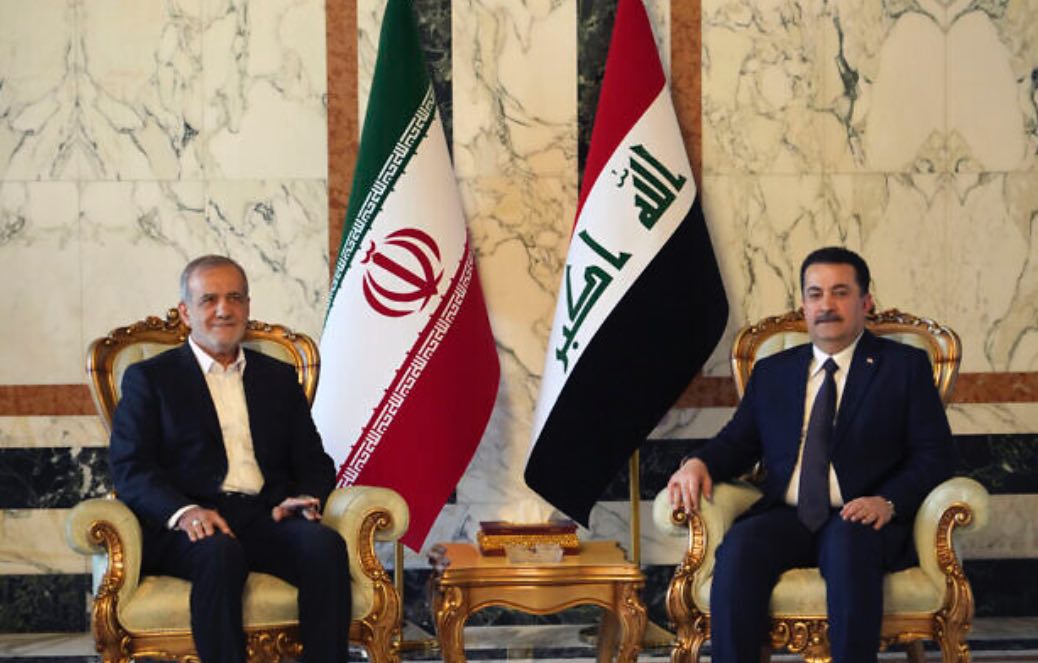Iraq, the Last Stronghold
Iraq, the Last Stronghold
Now that Hezbollah, as Iran’s most important regional arm, has suffered significant losses in its conflict with Israel, it might be a suitable time to reassess Iran’s influence in the Middle East. The fact is that maintaining the scope of influence on the northern edge of the Middle East has always been challenging for Iran. The issue is not just Lebanon; Syria has also become a significant challenge for Iran.
As a result, when Lebanon and Syria are in a challenging situation, naturally, this challenge spills over into Iraq and threatens Iran’s influence in this country as well. Recently, Jake Sullivan, the U.S. National Security Advisor, and Antony Blinken, the U.S. Secretary of State, have separately spoken with Mohammed Shia’ Al Sudani, the Prime Minister of Iraq.
The subject of both conversations was the efforts of some Iran-backed groups in Iraq to use the country’s soil to attack Israel. Apparently, the message conveyed to Sudani in these talks was that if Iran-backed groups use Iraqi soil to attack Israel, Israel might conduct attacks in Iraq.
These conversations took place simultaneously with reports indicating that Iran is planning a strong and complex response to Israel. Some reports have claimed that Iraq will be a key element in this response. History shows that major military threats against Iran have mostly originated from the west. Alexander the Great conquered Iran from this route. In the 7th century, the Sassanian Empire of Iran was attacked from Iraq by the Byzantine Empire, which was based in modern-day Turkey.
In the 16th century, the Safavid Empire similarly fought the Ottomans in the west, and a little over a year after the Iranian Revolution, Iraq attacked Iran from the west, leading to a war that lasted eight years. This historical precedent explains why Iraq has been a crucial element in Iran’s national security strategy. The Gulf War in 1991, in which a U.S.-led military coalition weakened the Iraqi regime, provided Iran with the opportunity to initiate the transformation of Iraq into a strategic point of influence.
As a result, Iran began supporting the Shia majority and Kurdish minority against the Ba’athist regime in Iraq. When Washington invaded Iraq again in 2003, Iran was in a very favorable position to become the biggest beneficiary of the fall of Saddam’s regime. The eight-year U.S. occupation of Iraq, during which Iraq was drawn into Iran’s orbit, was a boon for Iran’s regional influence.
The U.S. withdrawal from Iraq in 2011 allowed Tehran to consolidate its influence in Iraq. After establishing Hezbollah in the 1980s and fostering closer ties with Syria in the 1990s, Iraq was the last piece of the puzzle that enabled Iran to extend its influence to the Mediterranean Sea. The start of the Syrian civil war and the capture of Mosul by ISIS in 2014 allowed Tehran to leverage this influence at will.
The defeat of Syrian insurgents in late 2016 and the destruction of ISIS in 2018 made Iran’s confrontation with Israel inevitable. Israel observed how Iran, along with Hezbollah, established a presence on the northern flank, particularly in Syria. Therefore, by 2017, the Israeli Defense Forces launched a series of periodic airstrikes on the facilities and supply lines of the Quds Force, the overseas operations arm of the Islamic Revolutionary Guard Corps of Iran. The Israeli military’s attacks were primarily focused on Syria and were designed to prevent the Iranian threat in the Golan region.
Israel’s response to the October 7 attacks has further disrupted Iran’s regional strategy. Tehran now has to focus on rebuilding Hezbollah and cannot rely on Syria, which has no interest in involving itself in a war, at this time. So Iran has no choice but to ensure it can maintain its hold over Iraq. Today, Iraqi airspace has become a route through which Israel can conduct airstrikes against Iran.
If the war escalates and spills over into Iraq, the entire scope of Iran’s influence in the west will turn into a battlefield. This war will likely weaken Iran’s control over Iraq and Syria, and as a result, countries like Turkey, which seek to expand their geopolitical influence in Syria and Iraq, will have the upper hand.

